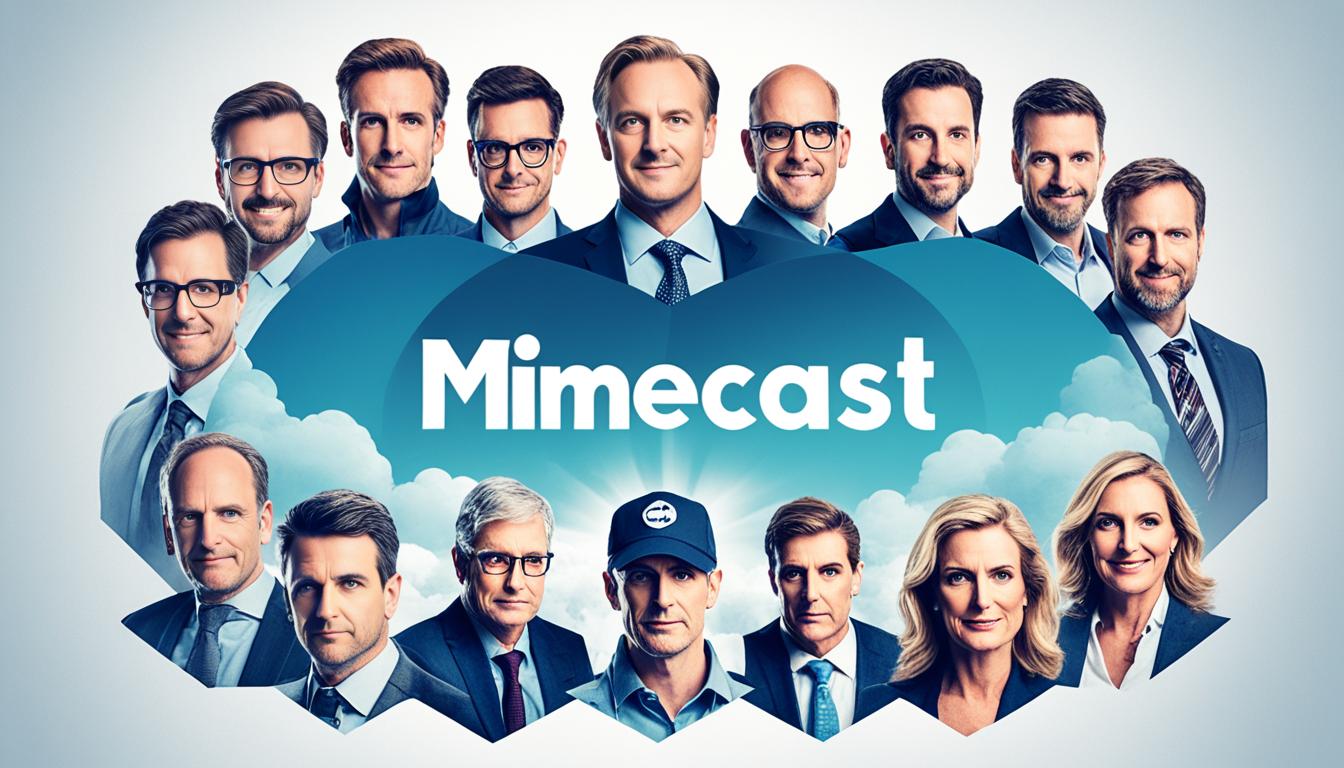Dunkin’ Donuts, a prominent player in the coffee and donut industry, has successfully developed a comprehensive branding strategy to enhance its position in the market and engage with its diverse customer base. With a global presence of approximately 13,500 stores across 42 countries, Dunkin’ Donuts has showcased its robust reach and popularity on a global scale.
Social media has been a key component of Dunkin’ Donuts’ branding strategy. With over 2.2 million followers on Instagram and 1.2 million followers on Twitter, the brand has effectively utilized these platforms to engage with its audience and create meaningful connections through captivating content.
Furthermore, Dunkin’ Donuts has prioritized market segmentation to tailor its marketing campaigns and products for specific demographics. By targeting students, workers, children, and families, Dunkin’ Donuts has demonstrated a strategic approach to customer engagement, catering to the unique preferences of each group.
The brand’s emphasis on special occasions has proven successful in driving customer visits and increasing sales. By running promotions and discounts during events like Valentine’s Day and Mother’s Day, Dunkin’ Donuts has successfully capitalized on these opportunities to generate excitement and engagement among its customer base.
In addition, Dunkin’ Donuts has leveraged influencer marketing collaborations to expand its reach and connect with its target audience. Collaborations with influencers like Charli D’Amelio have effectively tapped into diverse customer segments, resulting in increased sales and brand exposure.
The consistency in Dunkin’ Donuts’ messaging across different platforms has played a vital role in reinforcing its brand identity and building customer loyalty. Whether it’s through advertising campaigns featuring Ben Affleck or innovative social media content, Dunkin’ Donuts has ensured a cohesive brand experience for its audience.
Overall, Dunkin’ Donuts’ branding strategy for 2024 showcases a multi-faceted approach, combining influencer collaborations, market segmentation, special promotions, and consistent messaging. These efforts have contributed to the brand’s continued success and solidified its position as a leader in the coffee and donut industry.
Key Takeaways:
- Dunkin’ Donuts operates globally with approximately 13,500 stores in 42 countries.
- The brand targets various customer segments, including students, workers, children, and families.
- Influencer collaborations play a significant role in enhancing brand awareness.
- Special promotions during events like Valentine’s Day and Mother’s Day help drive engagement and increase sales.
- Dunkin’ Donuts leverages social media platforms, such as Instagram, Twitter, Facebook, and TikTok, for marketing campaigns and customer engagement.
Overview of Dunkin’ Donuts
Dunkin’ Donuts, a globally recognized coffee and donut shop chain, has made its mark in over 46 countries worldwide, operating more than 12,600 restaurants. As the number one retailer of donuts in America, Dunkin’ Donuts is known for its exceptional customer service and diverse menu offerings.
With a commitment to quality and consistency, Dunkin’ Donuts has built a loyal customer base by investing in high-quality coffee beans and developing a wide range of delicious donut flavors to cater to diverse consumer preferences.
The brand’s success is further recognized by its 12 consecutive years of being awarded as the number one coffee category brand for customer loyalty by Brand Keys. Dunkin’ Donuts’ famous slogan, “America Runs on Dunkin’,” has become ingrained in the minds of consumers.
To cater to evolving consumer tastes, Dunkin’ Donuts has introduced a broader range of healthier options while still maintaining its reputation for providing high-quality coffee and donuts at affordable prices. The brand’s commitment to innovation is evident through the introduction of unique products like Donut Fries and an increasing emphasis on On-the-Go Mobile Ordering.
Recognizing the shift in consumer behavior and preferences, Dunkin’ Donuts unveiled its new branding at its Global Franchisee Convention to position itself as a beverage-led, on-the-go brand. Since January 2019, the company officially recognizes its name as “Dunkin’.”
As a global brand, Dunkin’ Donuts has successfully extended its reach by collaborating with brands like Baskin-Robbins and Girl Scouts of the USA to target new audiences. The brand also demonstrates its commitment to corporate social responsibility by supporting charitable initiatives, including fundraising for children’s hospitals and military organizations.
With over 21,000 stores in 60 countries, Dunkin’ Donuts serves over 5 million customers daily, reflecting its position as a trusted destination for coffee and donut lovers worldwide. The brand’s success lies not only in its delicious offerings but also in its ability to adapt to local markets, introducing localized menu items and creating social media pages in different languages to engage with diverse audiences.
In the next section, we will explore how Dunkin’ Donuts strategically segments, targets, and positions its brand to maintain its competitive edge in the market.
Segmentation, Targeting, and Positioning
Dunkin’ Donuts understands the importance of effectively targeting and positioning its brand in the market. The company implements a robust market segmentation strategy that allows them to cater to a diverse range of consumers. By dividing their market into distinct segments, Dunkin’ Donuts can tailor their marketing efforts and product offerings to meet the specific needs and preferences of each segment.
One of the primary methods of segmentation used by Dunkin’ Donuts is demographic segmentation. This approach involves dividing the market based on characteristics such as age, gender, income, and location. By analyzing demographic data, Dunkin’ Donuts gains valuable insights into their target audience and can create targeted marketing messages that resonate with different consumer groups.
In addition to demographic segmentation, Dunkin’ Donuts also considers psychographic factors when developing their marketing strategies. Psychographic segmentation involves understanding the values, interests, and lifestyles of consumers. By taking into account these psychographic variables, Dunkin’ Donuts can create campaigns that align with the attitudes and preferences of their target audience.
Dunkin’ Donuts primarily targets millennials, middle-aged customers, and school or college-going teenagers. These customer groups are the main consumers of their products and form a significant portion of their target audience. By focusing on these segments, Dunkin’ Donuts can tailor their product offerings and marketing messages to appeal to these specific demographics.
When it comes to market positioning, Dunkin’ Donuts distinguishes itself through its offering of flavored coffee, muffins, and doughnuts. The brand has successfully positioned itself as a go-to destination for these indulgent treats. Additionally, Dunkin’ Donuts has embraced innovation by introducing limited-time flavors that create excitement among their customers and encourage retention.
To further enhance their market positioning, Dunkin’ Donuts has expanded their menu to include healthy options. This includes integrating low-calorie, low-sugar alternatives such as reduced-fat muffins and fresh fruit cups. They have also responded to the growing demand for plant-based products by providing alternatives like almond milk and oat milk, catering to health-conscious customers and aligning with sustainability trends.
Overall, Dunkin’ Donuts’ strategic segmentation, targeting, and positioning efforts have allowed them to successfully establish themselves as a leader in the fast-food industry. By understanding their target audience and tailoring their products and marketing messages, Dunkin’ Donuts continues to attract and retain a diverse customer base.
Marketing Campaigns
Dunkin’ Donuts is known for its innovative and impactful marketing campaigns that have contributed to the brand’s success and visibility. These campaigns not only enhance brand recognition but also drive customer engagement and promote Dunkin’ Donuts’ wide range of products and offerings.
One of the key strategies employed by Dunkin’ Donuts is collaborating with influencers and digital talent networks. By partnering with popular influencers who have a strong following, Dunkin’ Donuts is able to amplify its reach and connect with a broader audience. These collaborations result in engaging and relatable content that resonates with consumers, showcasing the brand’s products in a compelling way.
In addition to influencer marketing, Dunkin’ Donuts runs promotional offers and discounts to entice customers. Seasonal promotions, such as those during Valentine’s Day and Mother’s Day, create a sense of excitement and urgency, driving customer traffic to Dunkin’ Donuts stores. These promotions not only boost sales but also foster customer loyalty and satisfaction.
Furthermore, Dunkin’ Donuts leverages various advertising methods to reach its target audience. The brand combines traditional methods like television commercials and billboards with digital and social media advertising. This multi-channel approach ensures maximum visibility and engagement across different platforms and allows Dunkin’ Donuts to connect with consumers in a variety of ways.
Another successful aspect of Dunkin’ Donuts’ marketing campaigns is their focus on user-generated content. By encouraging customers to generate content through challenges and contests, Dunkin’ Donuts creates a sense of community and cultivates a loyal fan base. This user-generated content serves as free advertising, as customers share their experiences and love for Dunkin’ Donuts with their own networks.
With data-driven advertising, Dunkin’ Donuts utilizes insights from customer behavior and preferences to target online advertisements effectively. This ensures that the right audience is reached, maximizing the impact of the marketing campaigns.
Overall, Dunkin’ Donuts’ marketing campaigns capitalize on its strong brand identity, collaborations with influencers, and promotional offers to drive brand awareness, customer engagement, and ultimately, sales.
Social Media Marketing
Dunkin’ Donuts understands the importance of leveraging social media platforms to connect with its audience and build brand awareness. With a strong social media presence on popular platforms like Instagram, Twitter, Facebook, and TikTok, Dunkin’ effectively engages its customers and drives customer loyalty.
On Instagram, Dunkin’ Donuts has over 2 million followers, who eagerly await new product launches, promotions, and creative content. The brand strategically uses Instagram to showcase its delicious offerings through visually captivating graphics and enticing food photography. By regularly posting mouthwatering images of their donuts, coffee, and other menu items, Dunkin’ keeps its audience engaged and craving their products.
Recognizing the growing popularity of TikTok, Dunkin’ has actively embraced this platform and has amassed a following of 3 million users. Their TikTok videos, featuring catchy dances, humorous skits, and behind-the-scenes glimpses, garner millions of likes and thousands of comments. Dunkin’ actively involves its employees by allowing them to become TikTok crew ambassadors, creating unique content and sharing their experiences, for which they are compensated. This strategy not only builds employee engagement but also deepens the connection between Dunkin’ and its audience.
Facebook and Twitter are also essential components of Dunkin’ Donuts’ social media strategy. Through these platforms, the brand not only showcases its products but also engages with its customers by responding to their comments, inquiries, and feedback. By maintaining an active presence on Facebook and Twitter, Dunkin’ fosters a sense of community and personal connection with its audience.
The success of Dunkin’ Donuts’ social media marketing efforts can be seen in the strong consumer engagement and brand loyalty it generates. The brand’s TikTok following of 3 million surpasses that of its competitors like McDonald’s and Starbucks, indicating the effectiveness of their social media strategy. Additionally, merchandise from Dunkin’ sells out almost immediately after release, demonstrating the enthusiasm and loyalty of Dunkin’ fans.
Overall, Dunkin’ Donuts’ strategic use of social media platforms like Instagram, Twitter, Facebook, and TikTok has allowed them to effectively connect with their audience, drive customer engagement, and position themselves as a beloved and influential brand in the coffee and donut industry.
SEO Strategies
As a popular coffee and baked goods chain, Dunkin’ Donuts recognizes the importance of implementing effective SEO strategies to reach and engage with its target audience. By leveraging various SEO techniques, Dunkin’ Donuts aims to improve its online visibility, increase organic traffic, and ultimately drive sales and revenue.
One of the key aspects of Dunkin’ Donuts’ SEO strategy is keyword targeting. The company conducts thorough research to identify the keywords and phrases that are most relevant to its business and target market. By incorporating these keywords strategically into its website content, meta tags, and other elements, Dunkin’ Donuts aims to rank higher in search engine results and attract more organic traffic.
In addition to keyword targeting, Dunkin’ Donuts focuses on on-page optimization. This involves optimizing the structure, design, and content of its web pages to enhance user experience and make it easier for search engines to crawl and index the site. By ensuring that its website is technically sound, mobile-friendly, and provides valuable and relevant content, Dunkin’ Donuts aims to improve its search engine rankings and increase its online visibility.
Dunkin’ Donuts also recognizes the importance of technical SEO in its overall digital marketing strategy. Technical SEO involves optimizing the technical aspects of a website, such as page loading speed, site architecture, and URL structure. By ensuring that its website is technically optimized, Dunkin’ Donuts aims to provide a seamless user experience and improve its search engine rankings.
Furthermore, Dunkin’ Donuts implements localized SEO strategies to attract customers to its physical store locations. The company recognizes that many consumers search for local businesses online, and therefore focuses on optimizing its website and online listings for local search queries. By including location-specific keywords and information, Dunkin’ Donuts aims to appear prominently in local search results and drive foot traffic to its stores.
To support its SEO efforts, Dunkin’ Donuts consistently produces high-quality, relevant content that resonates with its target audience. By regularly publishing blog posts, articles, and other informative content, Dunkin’ Donuts not only provides value to its customers but also improves its search engine rankings by signaling to search engines that its website is a reliable and authoritative source of information.
Overall, Dunkin’ Donuts understands the importance of implementing effective SEO strategies to enhance its online presence and attract customers. By employing keyword targeting, on-page optimization, technical SEO, and localized SEO techniques, Dunkin’ Donuts strives to improve its search engine rankings, increase organic traffic, and ultimately drive growth and success in the competitive coffee and baked goods industry.
Influencer Marketing
Dunkin’ Donuts understands the significance of influencer marketing in today’s digital landscape. By collaborating with influential individuals, the brand not only expands its reach but also boosts sales and increases brand visibility. One notable collaboration that exemplifies the power of influencer marketing is Dunkin’ Donuts’ partnership with TikTok superstar Charli D’Amelio.
Charli D’Amelio’s massive following on TikTok provides an excellent platform for Dunkin’ Donuts to connect with a younger demographic. Through the collaboration, Dunkin’ Donuts launched “The Charli,” a custom menu item named after the popular influencer. This partnership not only generated immense buzz but also resulted in a significant sales boost within just a few days.
Within the first five days of Charli D’Amelio’s collaboration, Dunkin’ Donuts sold hundreds of thousands of cups of “The Charli.” The partnership also had a remarkable impact on digital engagement, with a 57% increase in app downloads and a record-breaking number of daily app users on the day of the collaboration’s launch.
Furthermore, the influencer collaboration led to a 20% overall sales boost for cold brews on the first day, followed by a 45% increase the next day. These impressive statistics illustrate the immediate impact that influencer partnerships can have on a brand’s sales and customer engagement.
It’s not just Dunkin’ Donuts that has seen success with influencer marketing. Other brands, such as Krystal, have leveraged influencer partnerships to enhance brand messaging and drive sales. Krystal focuses on collaborating with influencers and celebrities, both big names and smaller-scale influencers, to reach a wider audience and boost brand visibility.
Influencer marketing is a rapidly growing industry, with businesses investing billions of dollars into these partnerships. The statistics speak for themselves: influencer marketing has grown to $13.8 billion in 2021, with businesses making an impressive $5.78 ROI for every $1 spent on influencer marketing.
Moreover, influencer marketing is highly effective, as 90% of survey respondents believe it is an effective form of marketing. Brands recognize the value of partnering with influencers, with 67% using Instagram as their preferred platform for influencer collaborations.
As the demand for influencer marketing continues to rise, new platforms and agencies focusing on influencer marketing have entered the market. In the last five years alone, 1360 influencer marketing-focused platforms and agencies have emerged, highlighting the growing significance of this marketing strategy.
Summary
Influencer marketing has become an integral part of brands’ marketing strategies, and Dunkin’ Donuts has capitalized on this trend through successful collaborations with influencers like Charli D’Amelio. These partnerships not only drive sales and boost brand visibility but also demonstrate the power of influencer marketing in reaching new audiences and engaging with customers in a meaningful way.
The Power of Collaborations
Collaborations have become an integral part of Dunkin’ Donuts’ marketing strategy, allowing the brand to extend its reach and engage with a broader audience. By partnering with other brands and influential individuals, Dunkin’ Donuts leverages the power of collaboration to strengthen its position in the market. Notable collaborations include successful brand partnerships and collaborations with influencers, which have proven to be highly effective in driving customer engagement and boosting sales.
Brand Partnerships
Dunkin’ Donuts has strategically aligned itself with prominent brands to create exciting and innovative products that resonate with consumers. One example is the collaboration with Oreo, a beloved cookie brand known for its unique flavors. Together, Dunkin’ Donuts and Oreo introduced the Oreo Donut, a delectable treat that combines the best of both worlds. This partnership not only generated buzz and excitement but also attracted new customers who were eager to try this limited-edition creation.
The company has also tapped into the nostalgia and popularity of other well-known brands, such as its collaboration with Girl Scouts. By incorporating Girl Scout cookie flavors into their donuts and beverages, Dunkin’ Donuts appeals to fans of the iconic cookies while introducing their products to a wider audience. These collaborations not only drive sales but also strengthen brand loyalty among both Dunkin’ Donuts and Girl Scouts enthusiasts.
Influencer Collaborations
Recognizing the power of influencer marketing, Dunkin’ Donuts has successfully partnered with popular influencers to promote its products and reach a younger demographic. One noteworthy collaboration was with TikTok sensation Charli D’Amelio. The partnership resulted in the creation of “The Charli,” a signature drink inspired by D’Amelio’s personal preferences. Within a few days of its launch, hundreds of thousands of cups of “The Charli” were sold, showcasing the immense impact of influencer collaborations on product sales.
The collaboration with Charli D’Amelio also had a substantial effect on Dunkin’ Donuts’ digital presence. The campaign led to a significant increase in app downloads, demonstrating the effectiveness of strategic partnerships in driving customer engagement and brand loyalty. The partnership with Charli D’Amelio highlights the importance of aligning with influencers who resonate with the target audience and leveraging their influence to maximize reach and impact.
The Importance of Collaboration
Dunkin’ Donuts’ success in collaboration stems from its ability to identify partners whose brand strengths complement its own, and whose products align with the preferences of their target consumers. These collaborations enable Dunkin’ Donuts to introduce unique and exciting offerings that cater to consumer demands while expanding its customer base. By working closely with partners, Dunkin’ Donuts ensures that its collaborations are strategic, impactful, and resonate with its audience.
Table: Dunkin’ Donuts Collaborations and Partnerships
| Collaboration/Partnership | Description |
|---|---|
| Oreo | Collaboration to create the Oreo Donut, combining the flavors of Dunkin’ Donuts and Oreo. |
| Girl Scouts | Incorporated Girl Scout cookie flavors into their donuts and beverages, appealing to fans of the iconic cookies. |
| Charli D’Amelio | A successful partnership with TikTok influencer Charli D’Amelio, resulting in the launch of “The Charli” drink and driving significant sales and app engagement. |
These collaborations showcase the power of strategic partnerships in enhancing brand visibility, driving product sales, and engaging with customers. Dunkin’ Donuts’ ability to leverage collaborations effectively has propelled its marketing efforts and solidified its position as a leader in the industry.
Conclusion
The success of Dunkin’ Donuts’ marketing efforts can be attributed to their strong brand recognition and customer engagement strategies. By leveraging their brand identity as a fun and vibrant brand offering high-quality, affordable treats, Dunkin’ Donuts has built familiarity and trust with consumers. Their consistent messaging with the tagline “America Runs on Dunkin'” reinforces brand recall and connection, creating a mental link between their products and the energy needed to power through the day.
Through their marketing campaigns, Dunkin’ Donuts has fostered an emotional connection with viewers by showcasing relatable characters and utilizing humor and entertainment to make the viewing experience enjoyable and memorable. Celebrity endorsements in their commercials have also increased appeal and built a sense of familiarity and trust among consumers.
Furthermore, Dunkin’ Donuts’ comprehensive approach to social media marketing and SEO strategies has further enhanced their brand visibility and customer engagement. By understanding their target audience and tailoring their market segmentation, they have been able to create content that resonates with their core consumers.
In conclusion, Dunkin’ Donuts’ marketing success can be attributed to their commitment to building strong brand recognition, engaging customers through impactful campaigns, and effectively utilizing social media and SEO strategies. With their diversified product portfolio and cost leadership competitive strategy, Dunkin’ Donuts remains a significant player in the fast-food industry after more than 70 years.







